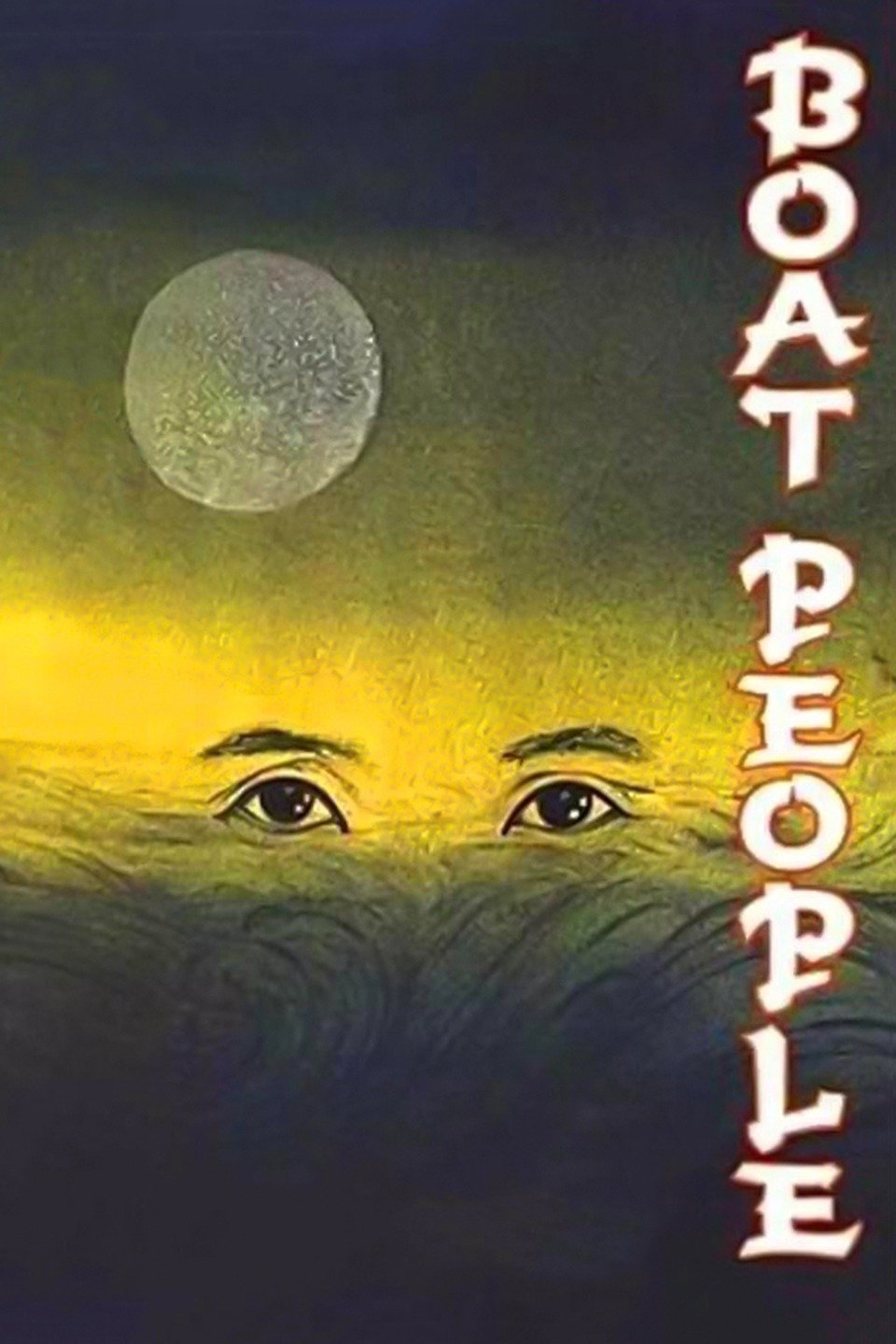BOAT PEOPLE (TAU BAN NO HOI) (TV)
(director: Ann Hui; screenwriter: Tai An-Ping Yau; cinematographer: David Chung/Zong Ji Huang/Chung Kay Wong; editor: Kin Kin; music: Wing-Fai Law; cast: George Lam (Shiomi Akutagawa), Season Ma (Cam Nuong), Cora Miao (Nguyen’s Mistress), Kei Mung-Sek (Nguyen), Andy Lau (Minh), Jialing Hao (Cam Nuong’s Mother), Juny (Lang), Guo Meiying Jia (Le Van Quyen), Gamhung Cheung (Ah Thanh), Jianzhou Cai (Monitor), Shijun Wu (Nhac); Runtime: 111; MPAA Rating: R; producer: Meng Xia; Janus/Bluebird Movie Enterprises; 1983-B/W, Hong Kong-in Cantonese, Japanese, Vietnamese with English subtitles)
“A politicized film revealing the human tragedy of war.”
Reviewed by Dennis Schwartz
Prolific Hong Kong filmmaker Ann Hui (“A Simple Life”/”All About Love”), in the third film of her brilliant Vietnam Trilogy, recounts the awful plight of the Vietnamese people after the communist takeover in 1975 following the Fall of Saigon in the ending of the Vietnam War.
The title in Chinese literally means “Run Towards the Angry Sea.” It’s a politicized film revealing the human tragedy of war and of a despotic regime that worships Ho Chi Minh’s form of communism.
The film is seen through the eyes of the humanitarian, left-wing, Japanese photojournalist, George Lam (Shiomi Akutagawa). He was in Viet Nam for the war and impressed the Communist victors by his fair coverage of their cause. George was orphaned at age one during the second World War, when the Americans wiped out his family. As an adult he has sincerely cared about all the children in the world having a better life.
The Viet Cong victors invite him back 3 years after the war for propaganda purposes and encourage him to send photos home to show the world how well things are going in Viet Nam under communist rule.
But he finds he’s being duped by his government minder (Jianzhou
Cai) and sees children forced to smile for his camera. He thereby requests from her boss, the sophisticated hedonistic Sorbonne educated army commander running the Cultural Bureau, comrade Nguyen (Kei Mung-Sek), that he visit alone the New Economic Zone near Da Nang, and is granted permission.
While on his own, Lam finds the real country with massive hunger, an autocratic state with massive arrests and execution squads for dissidents, unhappy children and police brutality. Wanting to get natural photos of smiling children is not possible. Thereby Lam hooks up with a destitute family and pays them to take him places to photograph the true scenes of the country.
He bonds with the family’s oldest daughter, Cam Nuong (Season Ma), whose ailing widowed mother (Jialing Hao) must secretly work as a prostitute to feed her children at the risk of imprisonment if caught. The oldest boy Nhac (Shijun Wu) is a slang-talking street hustler and the youngest brother, Lang (Junyi Guo), is a weakling who was fathered by a Korean soldier who was his mother’s client.
Finding life unbearable for the sweet sister and her hustler brother, Lam sells his camera to pay the expenses of getting them out of the country by boat and thereby ends up sacrificing his life so they can escape and have a new start in life.
Because the film was produced with the full co-operation of the government of the People’s Republic of China, a government that fought a recent war with Vietnam, many leftists view the film as an anti-Vietnam propaganda one despite Hui’s protestations to the contrary.
At the Cannes Film Festival, leftists protested against the film’s inclusion, and as a result it was dropped from the main competition at the bidding of the French government. They were seeking to maintain good relations with the Socialist Republic of Vietnam. In Taiwan, every film of Hui’s was banned because this one was filmed on Hainan, an island in the People’s Republic of China.

REVIEWED ON 12/13/2020 GRADE: A